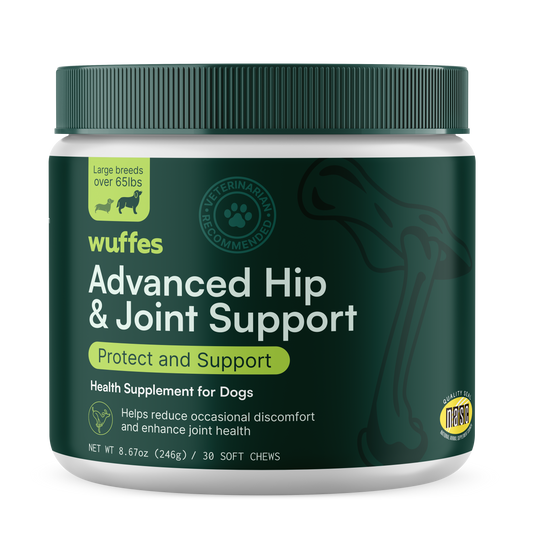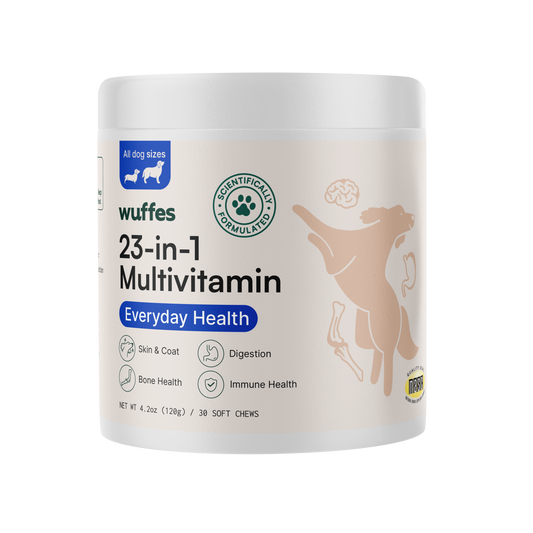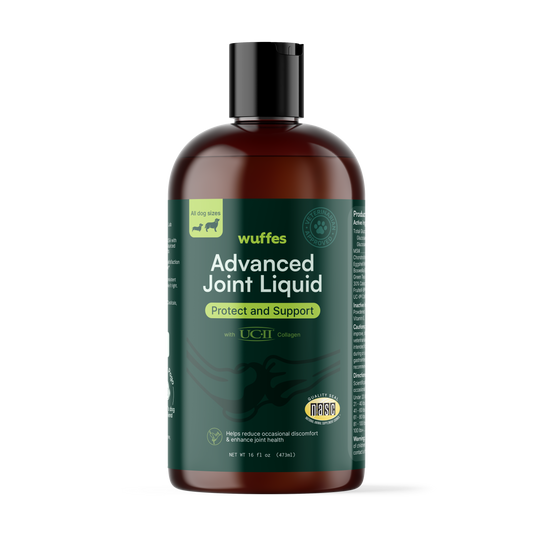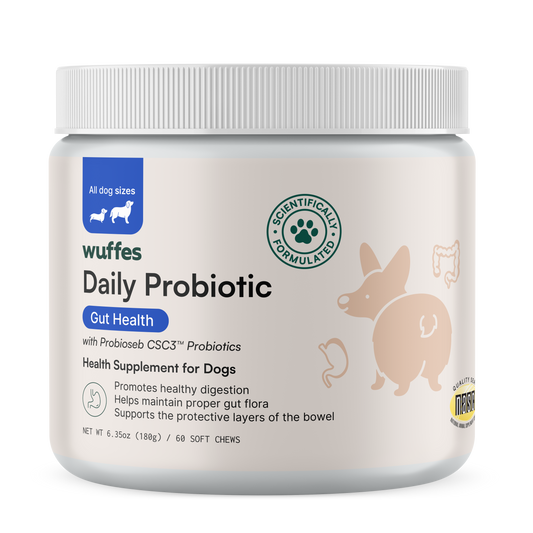Within the mouth, stomach and intestines, bacteria normally exist termed the “gut microbiome”. This microbiome, or specific population of bacteria living in an individual’s gastrointestinal tract, can impact the health of that individual, from mice, to dogs, to humans. The microbiome can be affected by things such as genetics, diet, probiotics, antibiotics, and disease processes within the individual’s body. Dysbiosis, refers to an abnormal population of bacteria within the gut, which can have negative effects on the individual’s health, such as stimulating autoimmune disease or inflammation.[1]
The Gut-Joint Axis Explained
There is on-going research evaluating how the gut microbiome may impact joint health. The term “gut-joint axis” is used to describe the complex interactions between the gut microbiome and joint health.1 Some of these interactions are described below:
-
The gut microbiome produces compounds such as fatty acids, enzymes, and pro-inflammatory mediators. If the gastrointestinal tract is inflamed, these compounds can move into the bloodstream and then the joints, also termed “leaky gut”.[1]
- Dysbiosis, including higher numbers of specific “bad” bacterial strains within the gut and lower numbers of “good” bacteria, can cause gut inflammation that can contribute to “leaky gut” and osteoarthritis, as well as immune-mediated (eg: Rheumatoid) arthritis. [1]
Using the Gut Microbiome to Support Joint Health
Research is on-going for how we can alter the gut microbiome to support joint health. Your veterinarian may recommend a fecal microbiome analysis and/or bloodwork to determine if dysbiosis could be affecting your pets’ arthritis. See some highlights below regarding how we can alter the gut microbiome to support joint health:
- Probiotics, or supplementing “good bacteria” in the diet, can help improve dysbiosis, resolve inflammation in the body, and support joint health.1 This can be especially helpful during or following a course of antibiotics, which can contribute to dysbiosis. [2]
- Diet can influence the microbiota and subsequently its effects on the body.
- Fiber (or “prebiotic”) consumption and vitamin D supplementation can affect the microbiome and support joint health in arthritic humans. [1]
- Mediterranean and vegetarian diets, which include nutrients such as omega-3 fatty acids, fiber, and antioxidants, can reduce signs of immune-mediated arthritis in humans. [1]
- Several studies have demonstrated that dental cleanings can reduce immune-mediated arthritic symptoms and measured inflammation in humans. [2]
There is still a lot to learn regarding the complex interactions between the gastrointestinal tract and joint health, especially in dogs. However, supporting the overall health of your dog, including gastrointestinal health, may help maintain a normal inflammatory response and support joint health. If your dog has abnormal gastrointestinal signs, such as loose stool, excessive gas, vomiting, or dental disease, it may be worthwhile to talk to your veterinarian about how to improve gut health, which could end up supporting your dog’s joint health as well.
References
- Longo UG, Lalli A, Bandini B, et al. Role of the Gut Microbiota in Osteoarthritis, Rheumatoid Arthritis, and Spondylarthritis: An Update on the Gut-Joint Axis. Int J Mol Sci. 2024;25(6):3242. Published 2024 Mar 13. doi:10.3390/ijms25063242
- de Oliveira RCG, Gardev E, Shaddox LM. Dysbiotic relationship between arthritis and the oral-gut microbiome. A critical review. J Periodontal Res. 2022;57(4):711-723. doi:10.1111/jre.13002
Dr. Erin Miscioscia, DVM DACVSMR CVA












